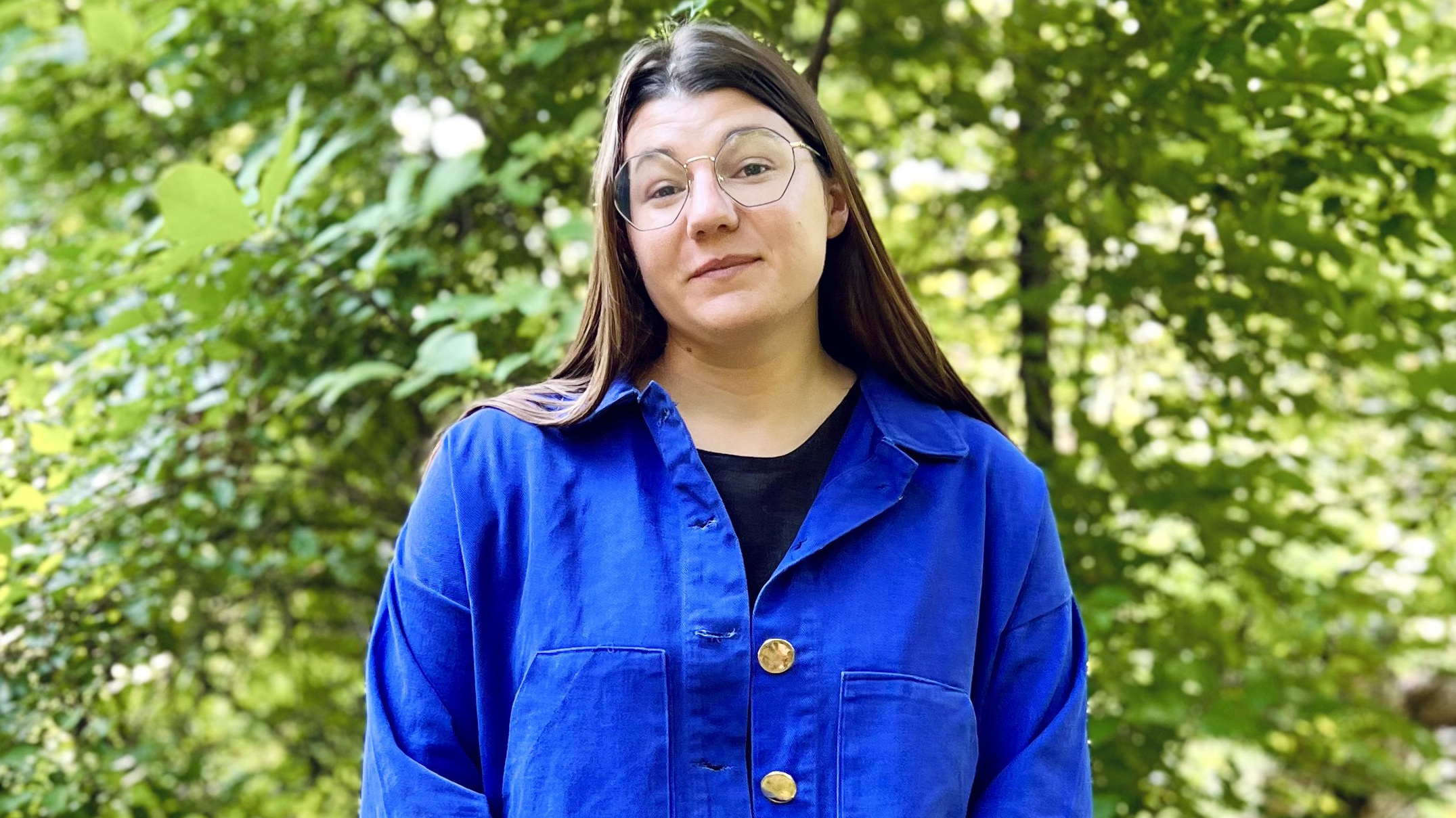Meet Jimil Ataman, Assistant Professor of Sustainable Innovation in the Global Fashion Industry
Donna McKinnon - 15 August 2024

Jimil Ataman proves you don't need fast fashion to have style.
Jimil Ataman is a feminist scholar of slow fashion, a growing trend that, as opposed to fast fashion — which moves cheap, low quality apparel from design to retail stores at a rate that requires unsustainable and often unethical practices — takes an ethical approach to the production of clothing.
It is a professional calling that started out as a personal pursuit for a community of slow fashion practitioners, which she found on Instagram, “like all good millennials”.
As she got deeper into the community, Jimil’s observations of the “tensions and possibilities of engaged slow fashion practice” fomented her desire to explore this world more broadly through a cultural anthropologist lens — a perspective that she now brings to her new role as assistant professor of sustainable innovation in the global fashion industry.
“I’m delighted to be joining this dynamic group of interdisciplinary scholars,” says Jimil, adding that she “shares many threads” with the Department of Human Ecology, including the belief that “fashion is a social, political and economic phenomenon that impacts how people shape their lives, their politics and their environments”.
Welcome Jimil!
Where were you born, and where did you receive your education?
I was born in California but grew up in Boise, Idaho. I moved to Pennsylvania to attend Lehigh University for my undergraduate degree, where I studied anthropology and history. I then attended graduate school at the University of Pennsylvania, where I first completed an M.S.Ed. in Education, Culture, and Society from the Graduate School of Education and then a joint PhD in Cultural Anthropology and Education, Culture, and Society.
What drew you to your particular area of research?
I came to slow fashion as a practitioner first. At the time, I had just finished my undergraduate degree and was looking for clothes to wear to my new job (at a community college) that fit my style and my values. Like all good millennials do, I took to Instagram, and found the slow fashion community there. Over the years, I have witnessed how the community has negotiated issues — such as the ethics of buying clothes, the politics of race and accessibility in the community, and the contradictions of developing a community of learning on a platform that has been designed to commodify and addict its users. These experiences grounded my ethnographic research which deeply engaged this community to explore how they take on the tensions and possibilities of engaged slow fashion practice with the goal of transforming the contemporary fashion system.
What’s one big problem you want to address through your work?
One of the central tensions that my work explores is how the aspirations and values of slow fashion are in contradiction with the current fashion system — which is built to profit off of overproduction, exploitation and unending growth. Theoretically, my work is engaged with these contradictions because they teach us about what it means to strive towards sustainability in this contemporary moment. As a cultural anthropologist, my work addresses the problems and possibilities of slow fashion through ethnographic explorations of its community practitioners — who are consumers, brand owners, industry professionals and home sewists. I set out to address not only what is complicated, fraught, or even problematic about slow fashion but also the possibilities and successes already underway.
How does the Department of Human Ecology fit in with your research interests and goals?
My research interests and goals sit at the intersection of two of the department’s research areas: material culture and textile and apparel science. I share many threads with this department, most broadly being that fashion is a social, political and economic phenomenon that impacts how people shape their lives, their politics and their environments. I’m delighted to be joining this dynamic group of interdisciplinary scholars, especially as I develop my research program, which is focused on how sustainable alternatives of fashion production and consumption are being materialized.
What will you be teaching in the fall, and what would you like students to gain from your courses?
This fall, I am teaching Fashion Industries (HECOL 241). In this class we will trace the history of fashion production, explore each segment of the fashion supply chain, and discover career paths in the industry. I hope that learners will leave with a cohesive understanding of the processes, problems and possibilities of the contemporary fashion industry.
I know you've only been here a short time, but what's your impression of Edmonton and the University of Alberta?
Thus far, I have been really enjoying Edmonton! I have been exploring the river valley with my dog, Mississippi and trying out all the fancy coffee shops I can find. This is also the most bikeable city I’ve ever lived in and I am loving how safe it feels to bike here. At the University of Alberta, everyone I have met has been extremely welcoming and kind. I consider myself extremely fortunate to be joining this intellectual community.
What do you do for leisure activities?
I love cycling. During graduate school I raced for a road cycling team in Philadelphia and in the past few years I also took up mountain biking. I doubt I’ll be racing again anytime soon, but I’m always looking for a good bike route with a coffee stop at the end. I also love to sew my own clothes and plan to spend the next few months making myself some Edmonton-appropriate winter clothes (I am going to try my hand at sewing a puffy jacket this fall!).